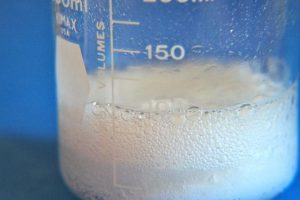Enhancing antimicrobial activity using bicarbonate

Tech ID
19-019
Inventors
E. Brown
M. Farha
C. MacNair
L. Carfrae
Patent Status
PCT application filed
Stage of Research
Proof of principle data available
Contact
Sunita Asrani
Associate Director, Business Development and Copyright
Abstract
Antibiotic resistance is one of the most pressing challenges to infectious disease medicine. The growing number of multi-drug resistant pathogens coupled with the retreat of the pharmaceutical sector from new antibiotic development has exacerbated this problem such that new innovative strategies are needed to meet these health challenges. Bicarbonate, which acts as the dominant buffer in all body fluids and organs, has remarkable power as an antibiotic adjuvant and has great potential in the discovery and development of new antibacterial drugs. However, to fully understand the full potential of bicarbonate as an adjuvant, a more in-depth assessment is needed.
McMaster researchers have developed a method for inhibiting the growth of a microbe by contacting the microbe with an effective amount of bicarbonate and an antimicrobial agent. The discovery provides methods for treating or preventing microbial infections in medical and veterinary applications. The use of bicarbonate in potentiating the activity of antibiotics has significant implications in the development of novel therapies for the future.
Applications
- Medical Applications:
- Broad-spectrum treatment of bacterial infections
- Topical treatments, aerosolized formulations as well as ophthalmic indications
- Infection treatment
- Veterinary Medicine
Advantages
- Therapeutic designs consist of a natural and harmless substance (bicarbonate).
- Bicarbonate shown to alter the proton motive force (PMF) of bacteria, thus affecting any process and/or uptake driven by PMF.
- Novel therapeutic possibilities.

